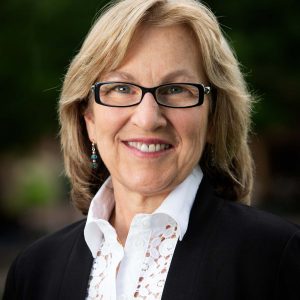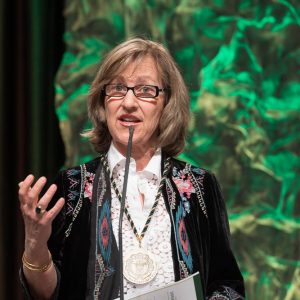As appearing on CLA SOURCE | 05.10.19
The College of Liberal Arts Celebrates University Distinguished Faculty
The College of Liberal Arts is celebrating the accomplishments of our professors as they become University Distinguished Faculty. Three professors have recently accepted 2019 University awards ranking their performance among the highest and most outstanding that Colorado State University has to offer.
Katherine Browne
Katherine Browne , professor of anthropology, has conducted path-breaking research in the field of cultural anthropology and has emerged as one of her discipline’s most recognized scholars. So, it is fitting that she is the first from her department – and just the fourth from the College of Liberal Arts – to be named University Distinguished Professor, CSU’s highest academic recognition.
, professor of anthropology, has conducted path-breaking research in the field of cultural anthropology and has emerged as one of her discipline’s most recognized scholars. So, it is fitting that she is the first from her department – and just the fourth from the College of Liberal Arts – to be named University Distinguished Professor, CSU’s highest academic recognition.
“To me, this award acknowledges the power of liberal arts disciplines as vital players in comprehending and solving the most pressing global issues,” said Browne, a member of CSU’s Department of Anthropology since 1994. “For my part, as a cultural anthropologist, I study communities that are impacted by disasters intensified by climate change. I began this work in Louisiana after Katrina. My current post-Hurricane Harvey work in Texas focuses on perceptions of risk among city dwellers, coastal townspeople, cattle ranchers and cotton farmers.”
Browne has emerged as a leading voice in the public discourse of disaster, addressing in particular how the distribution of resources in a society can alter disaster’s lasting impacts, and how cultural factors figure into recovery. Her research with an African-American family of 150 and their efforts to reclaim their pre-hurricane lives resulted first in her 2007 film Still Waiting: Life After Katrina, funded by the National Science Foundation. After six more years of study, she published her book, Standing in the Need: Culture, Comfort, and Coming Home After Katrina.
“In the process of documenting the Johnson-Fernandez family in St. Bernard Parish, I learned how the cultural disconnect between outside institutions like FEMA and the needs of local people led to immense suffering. It galvanized me,” Browne said. “I started writing op-eds and speaking in public forums – anything I could to communicate what I had learned to more people.”
More recently, Browne’s leadership in bringing together academics and practitioners through the Culture and Disaster Action Network (CADAN) has focused on changing disaster practice and policy by integrating cultural knowledge. With her CADAN collaborators, Browne’s research formed the basis for a 2019 FEMA report that diagnosed the paralysis in U.S. preparedness efforts and offered a culture-based approach as a more effective and sustainable solution.
Browne’s work has earned the attention and respect of her peers in anthropology. The substance and reach of her scholarship earned her the 2018 Franz Boas Award for Exemplary Service to Anthropology, considered the “Nobel Prize for anthropologists.”
“Kate’s record speaks for itself – its depth and breadth are staggering – from NSF-funded research, two detailed ethnographies in book format, high-impact articles, NPR interviews, and two documentary films,” said Mica Glantz, head of the Department of Anthropology. “What distinguishes her from other highly productive scholars is that she has made it a priority to communicate her findings not only to the subjects of her research, but also to the public and to our government. She is a true public scholar.”

Browne has received both The Ann Gill Excellence in Teaching Award and the Best Teacher Award. In keeping with her integrated approach to research and teaching, Browne will launch the nation’s first field school for the study of risk and disaster, a collaboration with Texas A&M-Corpus Christi. At the school, CSU students will have direct experience conducting ethnographic and geospatial research in an area still recovering from the effects of Hurricane Harvey.
“Her work, and now the work of the field school, becomes part of multi-disciplinary efforts to consult and recommend new and better ways our society can improve its protocols for mitigating risk and building resilience for recovering from disaster,” said Glantz. “That’s why her work is so important.”
Browne noted that when scholars in human-centered disciplines join forces with their colleagues in the natural and technical sciences, they become a force for change, a force for good.
“We absolutely need the assembled power of all kinds of expertise, both to recognize the fullness of a problem and to then imagine solutions that embrace that fullness.”